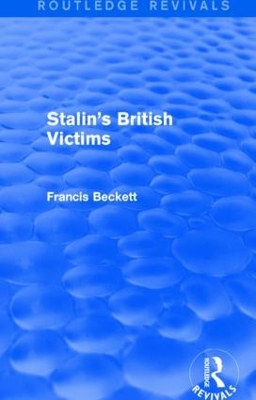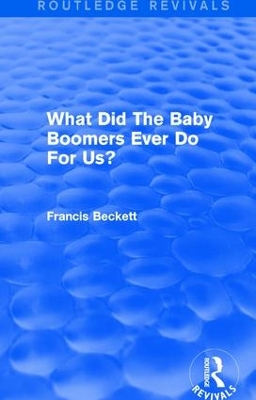Routledge Revivals
2 total works
First published in 2004, this book tells the stories of four remarkable British women, whose lives were scorched by Stalin's purges. One was shot as a spy; one nearly died as a slave labourer in Kazakhstan; and two saw their husbands taken away to the gulag and had to...
Read moreFirst published in 2004, this book tells the stories of four remarkable British women, whose lives were scorched by Stalin's purges. One was shot as a spy; one nearly died as a slave labourer in Kazakhstan; and two saw their husbands taken away to the gulag and had to spirit their small children out of the country.
We think of the horrors of the middle of the twentieth century- the Holocaust in Central Europe, the purges in the Soviet Union- as something foreign: terrible, but remote. Rosal Rust, Rose Cohen, Freda Utley, and Pearl Rimel were all Londoners. Like hundreds of young, idealistic Britons in the 1930s, they looked to the Soviet Union for inspiration, for a way in which society could be run better, without the exploitation and poverty which unrestrained capitalism had created. They were less fortunate than most of us: they saw their dreams fulfilled.
In this book, Francis Beckett draws on personal letters, interviews with surviving relatives and archivists to create a picture of four courageous, intelligent, and very different women. The result is a harrowing human document with vivid and unforgettable insights into the world of Stalin's Russia: its secret trials, labour camps, random disappearances, and concealed executions.
First published in 2010, this book explores the legacy of the baby boomers: the generation who, born in the aftermath of the Second World War, came of age in the radical sixties where for the first time since the War, there was freedom, money, and safe sex.
In this...
Read moreFirst published in 2010, this book explores the legacy of the baby boomers: the generation who, born in the aftermath of the Second World War, came of age in the radical sixties where for the first time since the War, there was freedom, money, and safe sex.
In this book, Francis Beckett argues that what began as the most radical-sounding generation for half a century turned into a random collection of youthful style gurus, sharp-toothed entrepreneurs and management consultants who believed revolution meant new ways of selling things; and Thatcherites, who thought freedom meant free markets, not free people. At last, it found its most complete expression in New Labour.
The author argues that the children of the 1960s betrayed the generations that came before and after, and that the true legacy of the swinging decade is in ashes.


